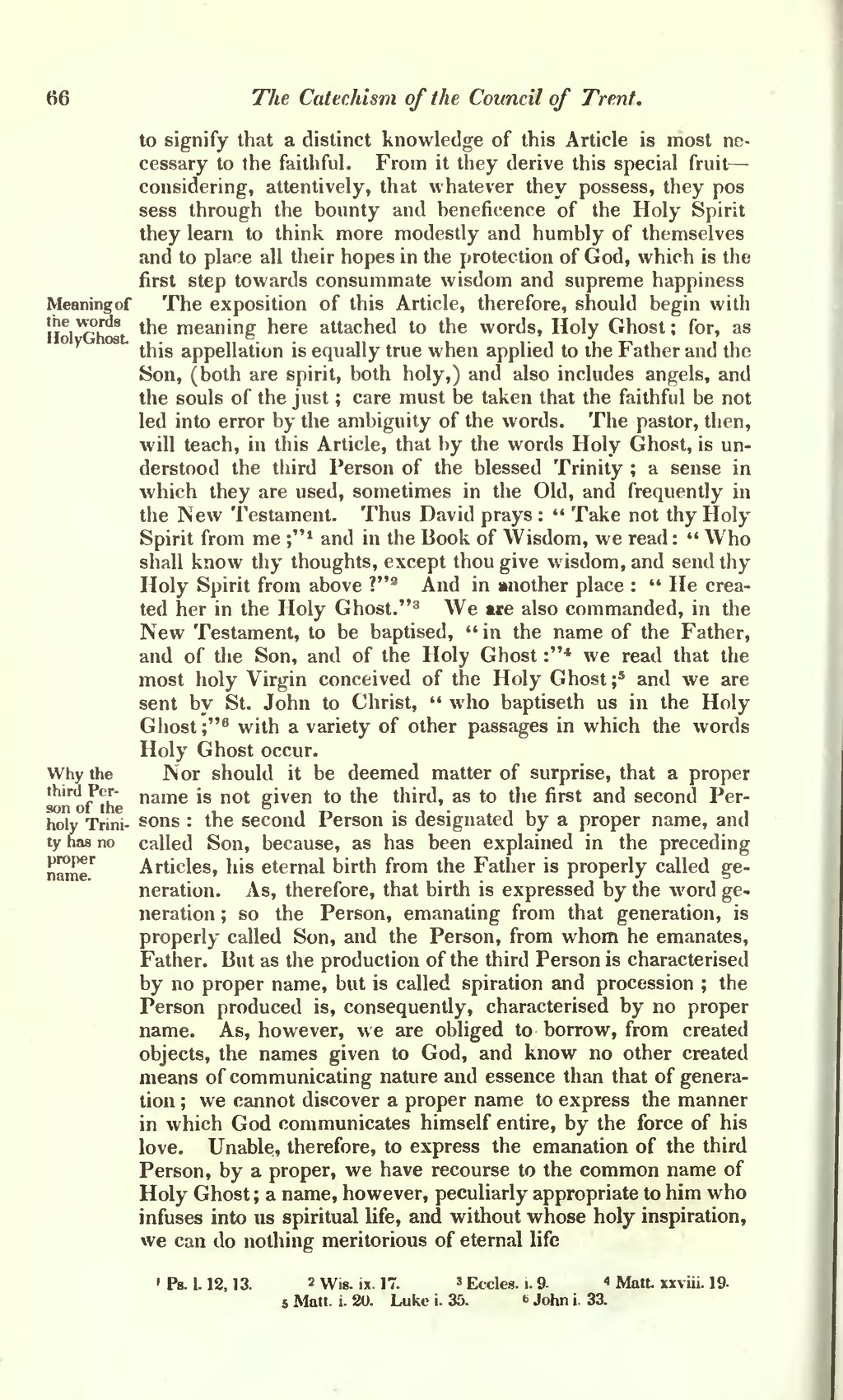to signify that a distinct knowledge of this Article is most necessary to the faithful. From it they derive this special fruit considering, attentively, that whatever they possess, they possess through the bounty and beneficence of the Holy Spirit they learn to think more modestly and humbly of themselves and to place all their hopes in the protection of God, which is the first step towards consummate wisdom and supreme happiness
The exposition of this Article, therefore, should begin with the meaning here attached to the words, Holy Ghost; for, as this appellation is equally true when applied to the Father and the Son, (both are spirit, both holy,) and also includes angels, and the souls of the just; care must be taken that the faithful be not led into error by the ambiguity of the words. The pastor, then, will teach, in this Article, that by the words Holy Ghost, is understood the third Person of the blessed Trinity; a sense in which they are used, sometimes in the Old, and frequently in the New Testament. Thus David prays: " Take not thy Holy Spirit from me;" [1] and in the Book of Wisdom, we read: " Who shall know thy thoughts, except thou give wisdom, and send thy Holy Spirit from above?" [2] And in another place: " He created her in the Holy Ghost." [3] We are also commanded, in the New Testament, to be baptised, "in the name of the Father, and of the Son, and of the Holy Ghost:"* [4]we read that the most holy Virgin conceived of the Holy Ghost; [5] and we are sent by St. John to Christ, " who baptiseth us in the Holy Ghost;" [6] with a variety of other passages in which the words Holy Ghost occur.
Now should it be deemed matter of surprise, that a proper name is not given to the third, as to the first and second Persons: the second Person is designated by a proper name, and called Son, because, as has been explained in the preceding Articles, his eternal birth from the Father is properly called generation. As, therefore, that birth is expressed by the word generation; so the Person, emanating from that generation, is properly called Son, and the Person, from whom he emanates, Father. But as the production of the third Person is characterised by no proper name, but is called spiration and procession; the Person produced is, consequently, characterised by no proper name. As, however, we are obliged to borrow, from created objects, the names given to God, and know no other created means of communicating nature and essence than that of generation; we cannot discover a proper name to express the manner in which God communicates himself entire, by the force of his love. Unable, therefore, to express the emanation of the third Person, by a proper, we have recourse to the common name of Holy Ghost; a name, however, peculiarly appropriate to him who infuses into us spiritual life, and without whose holy inspiration, we can do nothing meritorious of eternal life
